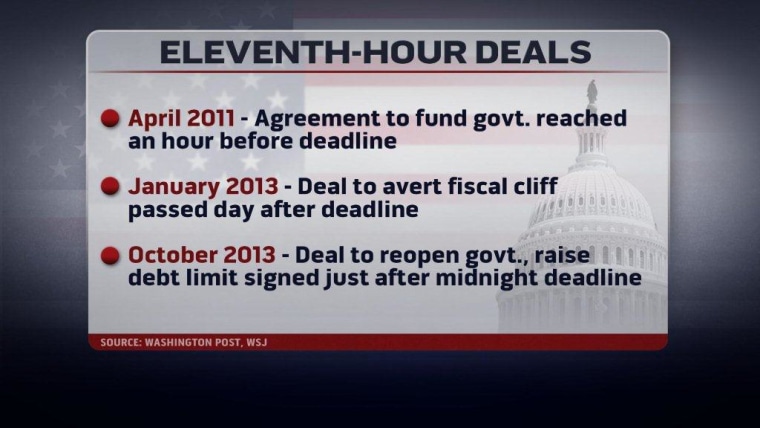
Like a taxpayer trying to fill out all his forms in the middle of the night on April 14th, Congress has once again waited until the last possible minute to strike a deal and avert an economic catastrophe. The legislation, which funds the government for 90 days and raises the debt ceiling until early February, was in doubt until it was passed by the House 10:20 p.m. ET on October 16 – less than two hours before the default deadline set by the Treasury Department.
Unfortunately, eleventh hour deals in Congress are becoming the rule, not the exception – particularly when it comes to some of our most difficult issues. On April 8, 2011, Speaker John Boehner announced a deal to fund the government and avert a shutdown at 11 p.m. – just an hour before the shutdown was set to begin.
Congress actually missed the fiscal cliff deadline on January 1, 2013, but came to an agreement the following day to block impending tax increases and postpone spending cuts. However, it put off dealing with the cost of health care and fell short of the grand bargain some had hoped for.
Following the latest round of brinksmanship, President Obama implored Congress to stop the last-minute legislating, insisting, “How business is done in this town has to change.”
While the worst of the economic fallout has gone unrealized, the political fallout won’t be so easily avoided. During the 16-day shutdown, Americans let Congressional lawmakers know they were fed up with the way Washington works these days. But with government funding set to run out again shortly after the New Year, we won’t have to wait long to see if they got the message.
